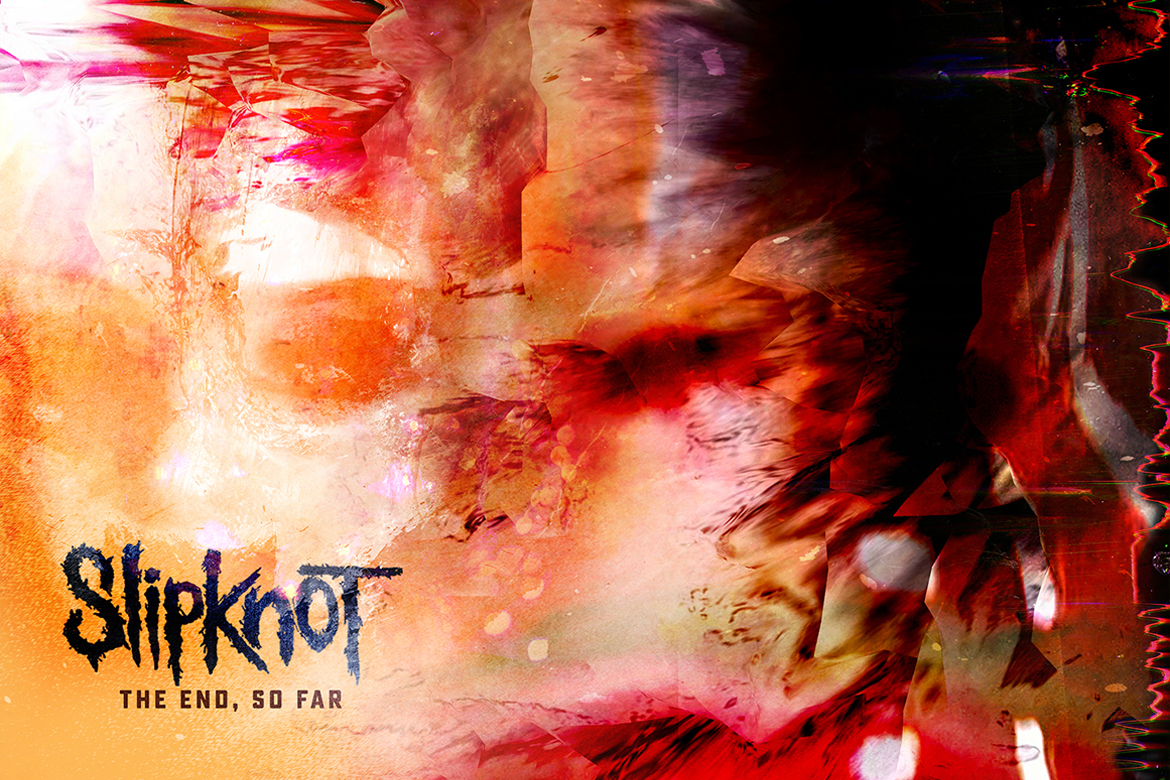“The heart begins to suffer when the soul has given up.”
We can all agree that Slipknot are fucking sick, yeah? That’s not to say their discography is perfect – far from it, in all reality. However, their works from ‘99-’05 were host to some of the greatest metal tunes of the era, many of which still hold up today. This is, I believe, through one thing that came through in their music: passion. Whether it was mostly passion born of hating the world, or one another within the band, it was passion nonetheless, and it came across loud and clear through the many absurdly pissed off bangers the band produced in that time. They also excelled in a way that many early Slipknot fans neglect, though: their melodicism. See, for a band as bombastic and aggressive as Slipknot are, their records housed some of the greatest rock choruses of the era. The mournful “Wait and Bleed”, the pained “Duality” and the all-questioning “Psychosocial” contained some of rock’s most earwormy and singable choruses in heavy music’s long history, and that’s no small feat.
With their later material, however, Slipknot have been more the subject of an increasingly divisive nature – that can all be traced back to 2008’s All Hope Is Gone. Their records, while commercially successful, were no longer slow-burn critical darlings, and instead started to show signs of aging within the band. This is by no means a negative by its own merit – a band previously known for their utmost discontent and outright hatred of one another showing signs of growth, learning to care and dropping their unhealthy habits is most certainly a good thing. Where the issues arose, however, was when the band made a concerted effort to be as heavy as Iowa. To relive their past on a musical level, but without the passionate backing that made the records they mimic so special. This trend has sadly shown to be destined to continue on their latest effort, The End, So Far.
While I don’t think much (with limited exceptions) of The End, So Far is outright bad, I can’t help but feel that it’s all a bit contrived. Many of the cuts here, even the relatively stronger ones, feel like Slipknot for the sake of Slipknot, as opposed to having any true artistic intention behind them. Opener “The Dying Song (Time To Sing)” exemplifies this fairly well, with an enjoyable yet strangely phoned in heavy foundation. The drums pound, the guitars chug and Corey Taylor screams with fury, but something about it just feels inauthentic.
Mainly, it feels that the band have made an effort to give the album an intentionally raw sound – mimicking the more rough-around-the-edges style of their earlier works, but it manifests in a way that feels they’ve intentionally hampered the production of the record to fit that criteria. The vocals aren’t mixed all too well, and the general weight of the instrumental feels quite compositionally thin. It doesn’t all sound bad – in fact the drums sound great, which is mostly down to a fantastic performance from Jay Weinberg, but the way the package all comes together feels like they missed the mark a tad.
Another thing you’ll notice as you make your way through The End, So Far is the band’s strange over-reliance on soundscaping on the record. Far too many cuts on here begin with 40-or-so seconds of floaty ambience, and while the soundscaping itself isn’t terribly composed – in fact it often sounds quite interesting – it begins to grate and feel a tad pretentious after you hear it a few times. Further, the album falters in a way that is wholly detrimental to their sound as a whole: the choruses. Given the band’s penchant for stadium-screaming anthems, you’d think they’d only get better at writing them over time, but the opposite could not be more apparent here. While there are many hooks present on the record that aren’t strictly bad, many of them lack the proper weight or infectious qualities required to push the songs up that extra notch. It’s a real shame, because I feel all that many of these songs are missing is a great hook, but are left sorely lacking as a result.
Still though, there are without a doubt highlights to be seen here. Quite contrary to what I’ve been saying, my experience with the record has largely been a positive one, actually. Tracks like “H377” and “Adderall” show the band’s strength in polarity. The former of the two is an aggressive, balls-to-the-wall anthem of authentically pissed off glory. The latter is a more low-key, lulling ballad, akin more to a softer cut from Faith No More’s Angel Dust than any Slipknot song I’ve heard before. Both showcase the utmost strengths of Slipknot’s songwriting, and while each end of the sonic spectrum the band implement across The End, So Far that these songs demonstrate aren’t implemented in equal quality or measure across the record, the few tastes of the band at the top of their game are enough to keep the momentum of the record going.
Overall, The End, So Far is an album emblematic of a band that has been at a continuous crossroads for over half their career. While the instrumentation here is largely well-constructed, and the vocal performances are largely great (with the greatest caveat there being the choruses), there’s something about Slipknot’s seventh record that feels contrived. The few songs that break away from the notion of Slipknot for the sake of Slipknot, and instead just fully commit to being their own thing, prove to be the greatest strengths of the record en masse. Still though, there’s much here to love, even if I can’t help shake the feeling I’m holding onto a band that are well past their prime.
6.5/10
The End, So Far will be available tomorrow, September 30th via Roadrunner, and you can pre-order the record here.

